| Source (Hebrew) | Contribute a translation |
|---|---|
צָעֲקָה יוֹכֶבֶד בְּקוֹל מַר וְקָשֶׁה סִינַי סִינַי אַיֵּה מֹשֶׁה | |
שַׁאֲלוּ לְחוֹרֵב שַׁאֲלוּ לְסִינַי אָנָה פָנָה עֶבֶד יי וְאָנָה הָלַךְ מַחְמַד עֵינַי וְכָהוּ מְאוֹרַי כִּי נִגְרַע מֹשֶׁה׃ סִינַי סִינַי אַיֵּה מֹשֶׁה | |
(לָבְשׁוּ חֲרָדָה אֶרֶץ וְשָׁמַיִם) אָחֲזָה רְעָדָה לִמְחוֹלַת הַמַּחֲנָיִם וְלֵב כָּל הָעֵדָה נֶהְפַּךְ לְמַיִם וְזָעֲקוּ בְמָרָה וְאֵין אִישׁ מַחְשֶׁה׃ סִינַי סִינַי אַיֵּה מֹשֶׁה | |
לְכוּ נָא לְיַם סוּף שֶׁבָּקַע בְּמַקְלוֹ וּלְהַר חוֹרֵב שַׁאֲלוּ לוֹ אַיֵּה הַגְּבִיר וְאַיֵּה אָהֳלוֹ אִם עָלָה לְסִינַי לְהַקְרִיב אִשֶּה׃ סִינַי סִינַי אַיֵּה מֹשֶׁה | |
מַה זֶה תֶּהֱמִי עֲנִיָּה אִמִּי הַשְׁקִיטִי בְחֵילֵךְ הֵרָגְעִי וְדֹמִּי הִצְדִיק דִּין שׁוֹכֵן הֲדֹמִי יוֹכֶבֶד אִמִּי אַחֲרַי הִתְנַחֲמִי כִּי סוֹף הָאָדָם לָמוּת כַּמַּלְוֶה כַּנֹּשֶׁה׃ סִינַי סִינַי אַיֵּה מֹשֶׁה | |
לָקְחוּ שְׂרָפִים וְחַיּוֹת אֶת הַמִּטָּה וְכָל מַלְאָךְ וּמַלְאָךְ בּוֹכֶה בְשִׁטָּה וּשְׁכִינָה תִזְעַק קוֹל בְּמִבְטָא אָנָה הָלַךְ עַבְדִּי מֹשֶׁה׃ סִינַי סִינַי אַיֵּה מֹשֶׁה | |
הַיּוֹם הוּעֲלָה אוֹר הָעוֹלָם סָפְדוּהוּ יִשְׂרָאֵל בֵּין הֵיכָל וְאוּלָם מַלְאָכִים הֶעֱלוּהוּ לִמְעוֹן אֶרְאֶלָּם וּזְכוּתוֹ לְבָנָיו צוּר אַל תִּנְשֶׁה׃ סִינַי סִינַי אַיֵּה מֹשֶׁה | |
מַה לָךְ בַּת לֵוִי אֵשֶׁת עַמְרָם צַר לִי לְמֹשֶׁה נִשָּׂא וָרָם מַלְאָכִים יָרְדוּ מֹשֶׁה הוּרָם נִשְׁאַרְתִּי אַחֲרָיו בְּלִי מַחְסֶה׃ סִינַי סִינַי אַיֵּה מֹשֶׁה | |
הַיּוֹם נֶחְתָּם מַעְיַן הַחָכְמָה הַיּוֹם נִסְתַּם בְּאֵר מְזִמָּה מַלְאָכִים הֶעֱלוּהוּ לִשְׁמֵי רוּמָה לִפְנַי וְלִפְנִים קֹדֶשׁ קָדְשֵׁי׃ סִינַי סִינַי אַיֵּה מֹשֶׁה | |
הַר הָעֲבָרִים אַשְׁרֵי חֶלְקָךְ מִבְחַר קְבָרִים הָיָה בְחֶלְקָךְ וְכָל הֶהָרִים חָשְׁקוּ בְחִשְׁקָךְ כִּי בְךָ נִקְבַּר אִישׁ הָאֱלֹהִים מֹשֶׁה׃ סִינַי סִינַי אַיֵּה מֹשֶׁה | |
הַיּוֹם הַזֶּה תִּזְכּוֹר זְכוּתוֹ לְמַהֵר לְקַבֵּץ שְׁאֵרִית עֲדָתוֹ ובָרֵךְ תְּבָרֵךְ לְעַמְּךָ כְּבִרְכָתוֹ וְזֹאת הַבְּרָכָה אֲשֶׁר בֵּרַךְ מֹשֶׁה׃ סִינַי סִינַי אַיֵּה מֹשֶׁה |
The 7th of Adar is the traditional date for the yahrzeit of Mosheh Rabbeinu and it is also remembered as the day of his birth 120 years earlier. This variation of of the piyyut, Tsa’aqah Yokheved (the Cry of Yokheved), sung on 7 Adar, is first attested in a 1712 Sepharadi mahzor published in Amsterdam, as transcribed above with some minor changes with the contemporary audio recording of the Iraqi nusaḥ made by משה חבושה (Moshe Ḥavusha). (The piyyut appear without niqqud.) An older version (perhaps the original version), attributed in the Maagarim database to Shmuel Shlomo and dated before 1050 CE, is attested in two manuscripts: “London, British Library 699” and “Berlin, Staatsbibliothek, Ham. 288”. Ibn Ezra (1089-1167) quotes a stanza from the version we have presented here (“וכבד אמי אחרי התנחמי”) indicating that this version may be at least as old. We are very grateful to Nir Krakauer for pointing this text.
Recording
Source(s)

“צָעֲקָה יוֹכֶבֶד | Tsa’aqah Yokheved, a piyyut attributed to Shmuel Shlomo (before 1050 CE)” is shared through the Open Siddur Project with a Creative Commons Public Domain Dedication 1.0 Universal license.
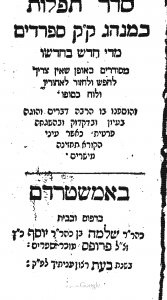
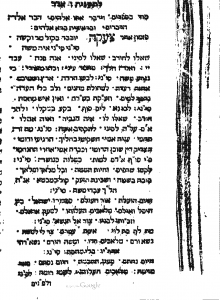
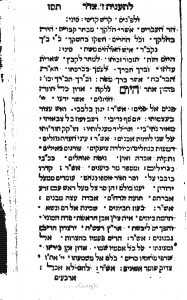
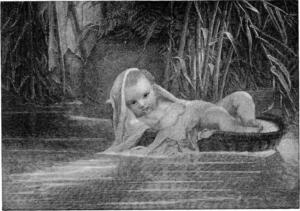




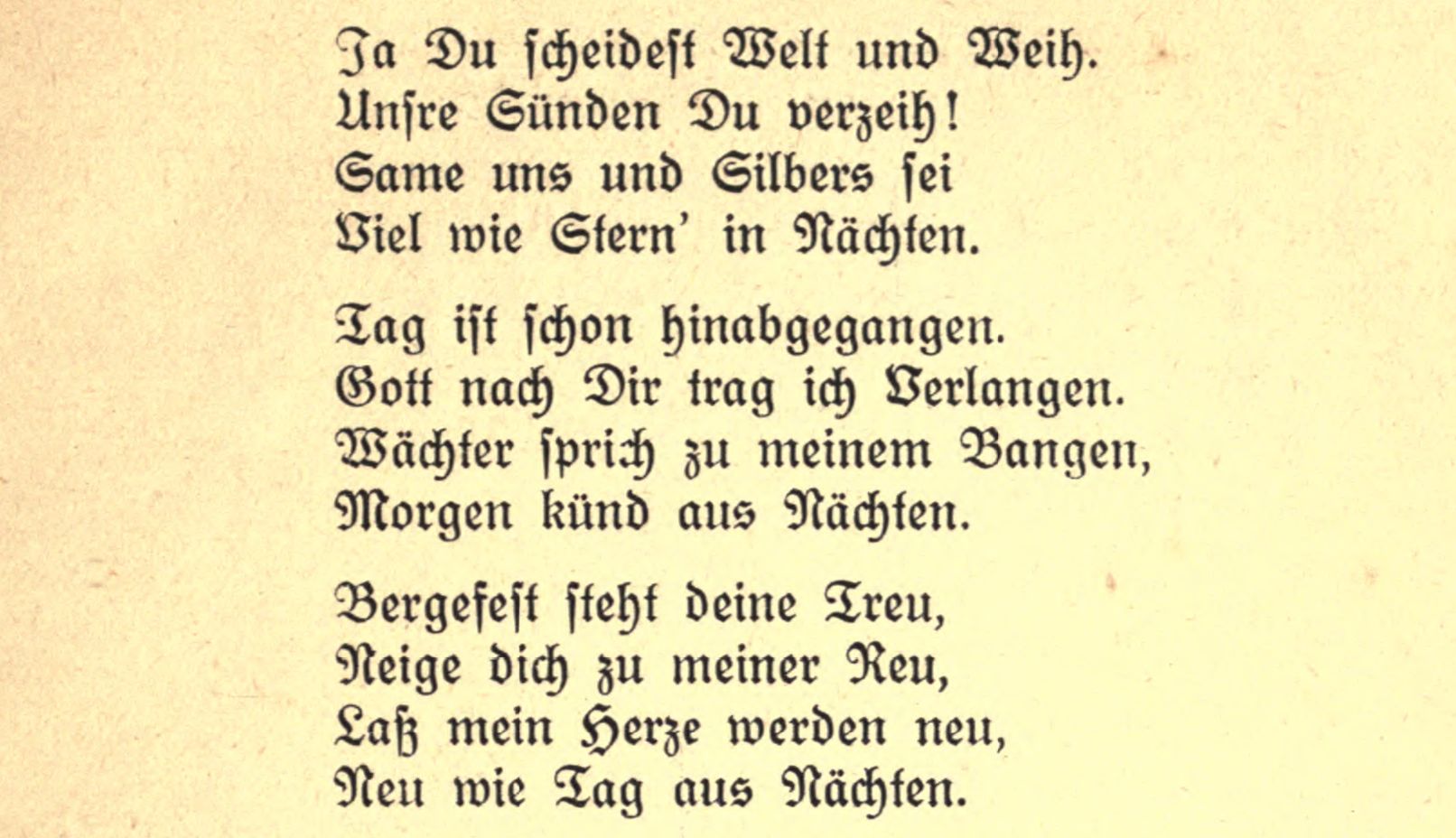
Comments, Corrections, and Queries